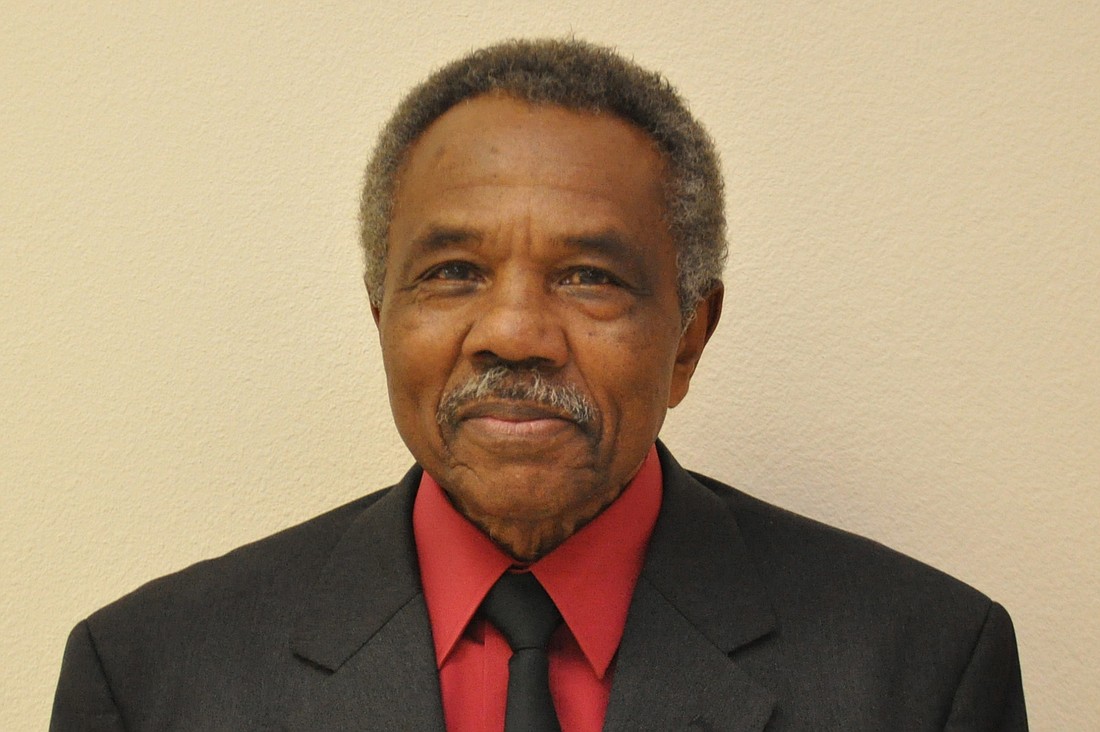- April 24, 2024
-
-
Loading

Loading

When Ricky Williams, 10 at the time, first went to see Dr. Morris Carter, back in 1973, in Bunnell, he was excited.
“We’d never seen a black doctor before. We’d seen whites, on TV,” he said. “It was a big deal. That’s who we saw in the African American community. Our whole lives, that’s who we went to see if we got hurt."
Carter, now 83 and medical director for Flagler County Health, was named the county’s Public Health Hero in a proclamation at the Flagler County Board of County Commissioners' Monday meeting.
He arrived at the meeting early with friends who’d been his patients in Bunnell when he maintained a private practice there, beginning in 1976.
Carter had treated generations of Flagler County residents, they said, in addition to serving as a doctor at he Flagler County jail for more than 30 years and medical director for Flagler Health, where he worked since 1972 after a stint treating migrant farm workers for the Florida Department of Health.
“He’s like doctors you don’t find anymore,” said Alma Brown, now an Ormond Beach resident. “So personable. So caring.”
Flagler Health Nursing Director Bonnie Welter has worked with Carter since 1987.
“He’s taken care of patients, and the patients’ families, and their families,” she said. “He was always an extremely energetic and enthusiastic health provider. He never sat down. He was just go, go, go.”
Carter, a Chicago native born in 1930, decided to become a doctor after he finished a stint in the Air Force, where he served in Texas.
But it was tough for a black man to get into medical school then, he said. Universities had quota systems.
“I went to Europe, learned French and enrolled in the Catholic University of Louvain to study medicine,” he said. “I received my medical degree in 1965, in Belgium.”
He returned to Chicago and worked there for a while before attending a health conference in New Jersey, in 1972.
“There, I met some recruiters for the state of Florida, who asked me, 'Was I interested in working in Florida?” he said.
He took the job, working for the state health department treating migrant workers brought to his office by bus. The hours were long.
“The farmers wouldn’t let them off of work, so the van didn’t go out until after work hours,” he said. “Our office hours began when the van was seen and ended with the last patient, often around midnight.”
Working for the state, he bounced around Central Florida, working out of offices in Crescent City, Hastings and Bunnell, where he maintained a private practice from 1976 to 2010.
Sometimes in those earlier years, he said, racist patients gave him trouble.
“Sometimes patients didn’t want to be seen by me,” he said. “Most of the time, I never had any problems. It was kind of like, what you see is what you get — and there was nobody else there, in some cases.”
For the most part, though, the community was welcoming.
“I was accepted by the community, that’s the main thing,” he said. “I love people in Flagler County. I love the area.”
Carter, now an Ormond Beach resident, spent most of his professional life living in Volusia County — he had a young family when he started work in Florida, and settled down in Daytona, which was more urban — but he cofounded the Flagler County Medical Society and was chief of staff of the Community Hospital of Bunnell.
The Flagler Health Department office now sits on Dr. Carter Boulevard, said Flagler Health Director Patrick Johnson. Johnson called Monday’s award “well-deserved," and said Carter was focused and unflappable, a man not easily distracted from his work.
“I remember when I first got here . . . they were working on the roof, and there was an accident, and they dropped some heavy tools that fell through the roof and landed right next to Dr. Carter. Just missed him. He didn’t skip a beat. Just turned, looked, and went back to work," Johnson said.
Patients and colleagues remark on Carter's compassion, friendliness and easy sense of humor, Johnson said.
“He's just the easiest man to work with,” Johnson said. “The nurses like working with him. The patients like him. And he’s always really taken care of people who need help.”